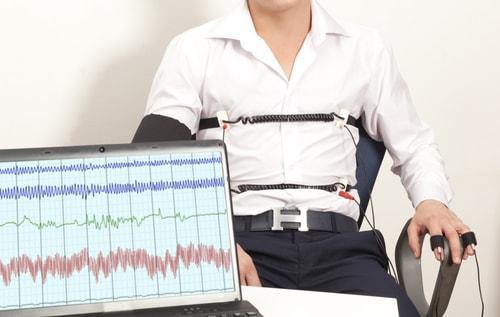The Hidden Secrets of Polygraphs
 For many people, daytime television is a guilty pleasure—whether they stayed home sick from work or simply took a weekday off for once. During the midday lineup, there are several shows that rely heavily on certain types of tests. Some days, they focus on DNA testing and provide the source of the ubiquitous phrase, “You are NOT the father.” Other days, those same shows ask guests to take lie detector tests, also called polygraphs, to determine if they are being honest with their spouse or significant others.
For many people, daytime television is a guilty pleasure—whether they stayed home sick from work or simply took a weekday off for once. During the midday lineup, there are several shows that rely heavily on certain types of tests. Some days, they focus on DNA testing and provide the source of the ubiquitous phrase, “You are NOT the father.” Other days, those same shows ask guests to take lie detector tests, also called polygraphs, to determine if they are being honest with their spouse or significant others.
When we watch shows like these, we realize that they are designed to entertain and keep viewers attention. Few of us actually care whether the test results were accurate. Polygraphs are often used in other applications, however, including in law enforcement and criminal cases, and some institutions continue to rely on them when scientific studies suggest they should not.
A Brief History
More than 100 years ago, a Harvard psychology student named William Marston observed an increase in his wife’s blood pressure when she “got mad or excited.” He surmised that he determine deception in her answers if he took her blood pressure while asking his wife questions. During World War I, he and others continued research on the subject, eventually adding breathing rate and skin conductance to blood pressure as points of observation. Eventually, the technique became known as a “polygraph” because it measured several things at once.
From the very beginning, polygraphs were held to be uncertain at best. Renowned mental health professionals could not reach an agreement on whether the physiological responses measured by the tests actually indicated deception. Blood pressure could spike for many reasons, for example, such as excitement or fear—not only because the subject was lying. Interpreting the results of a polygraph, therefore, is incredibly subjective and dependent on the conclusions of each individual examiner. Two different examiners could review the same polygraph results and reach very different conclusions about the subject’s level of deception.
Often Not Admissible in Court
These uncertainties have never been fully resolved. As a result, polygraphs are rarely been admissible as evidence in criminal proceedings. They are, however, sometimes used by law enforcement officials during criminal investigations. Some interrogation techniques include hooking the subject up to a polygraph and attempting to get the subject to confess by “confronting” him or her with the results of the test. There is no requirement for the police to be honest with criminal suspects, however, which means that interrogators often continue pushing for a confession even if the polygraph does not pick up on any deception by the subject.
In the rare instances that polygraph results are allowed in court, they are subject to intense scrutiny. The same is true for those who administer such tests and those who examine the results.
Contact a Hartford Criminal Defense Attorney
If you have been arrested and forced to take a polygraph during interrogation, contact an experienced Connecticut criminal defense lawyer. Call 860-290-8690 for a free consultation at Woolf & Ross Law Firm, LLC today. We will review your case and help you understand your options for protecting your future.
Sources:
https://www.wired.com/story/inside-polygraph-job-screening-black-mirror/
http://time.com/5407482/polygraph-machine-lie-detector-test-history/






